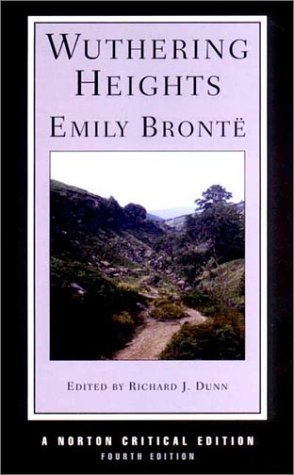Title: A Dark and Captivating Tale: "Wuthering Heights" by Emily Brontë
Emily Brontë's "Wuthering Heights" is a timeless classic that unfolds against the desolate and haunting moors of Yorkshire, England. Published in 1847, this Gothic novel is a tale of passion, revenge, and the destructive power of unbridled love.
The narrative is presented through the eyes of Mr. Lockwood, a newcomer to the moors, who rents Thrushcross Grange from the reserved Heathcliff. As he becomes entwined in the lives of the inhabitants of Wuthering Heights and Thrushcross Grange, he unearths a tragic and tumultuous history that spans generations.
One of the novel's remarkable strengths is its atmospheric and evocative prose. Brontë's rich descriptions of the moors and the imposing Wuthering Heights create a setting that becomes a character in its own right. The novel's brooding and dark tone sets the stage for the complex relationships and intense emotions that drive the narrative.
The characters in "Wuthering Heights" are as enigmatic as they are unforgettable. Heathcliff, a tortured and vengeful figure, dominates the story with his fierce passions and ruthless pursuit of his desires. Catherine Earnshaw, his soulmate, is a complex and conflicted character whose choices reverberate through the generations. The supporting cast, including the mild-mannered Mr. Lockwood and the pragmatic Nelly Dean, adds depth to the narrative, offering different perspectives on the unfolding tragedy.
The novel's structure, with its use of multiple narrators and flashbacks, adds layers of complexity to the storytelling. Brontë invites readers to piece together the puzzle of Wuthering Heights, creating a narrative that is both immersive and thought-provoking. The themes of social class, revenge, and the destructive nature of unchecked passion are explored with a depth that transcends the novel's time and place of origin.
At its core, "Wuthering Heights" is a love story, but it is a love story that defies conventional expectations. Brontë's exploration of the darker aspects of love challenges traditional notions of romance, portraying it as a force capable of both salvation and damnation.
The enduring appeal of "Wuthering Heights" lies in its ability to resonate with readers across generations. Its exploration of timeless themes, coupled with Brontë's masterful storytelling and unforgettable characters, ensures that the novel continues to be a captivating and influential work of literature.
In conclusion, "Wuthering Heights" is a literary masterpiece that transcends the boundaries of time and genre. Emily Brontë's haunting tale of love and revenge, set against the backdrop of the windswept moors, remains a testament to the enduring power of Gothic fiction and its ability to delve into the depths of the human soul.

Comments
Post a Comment